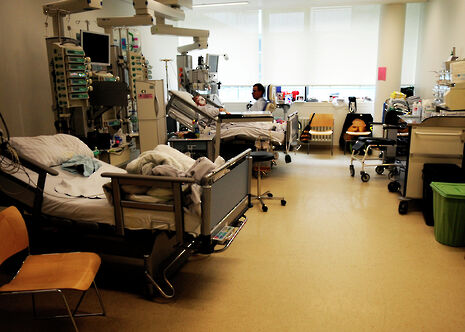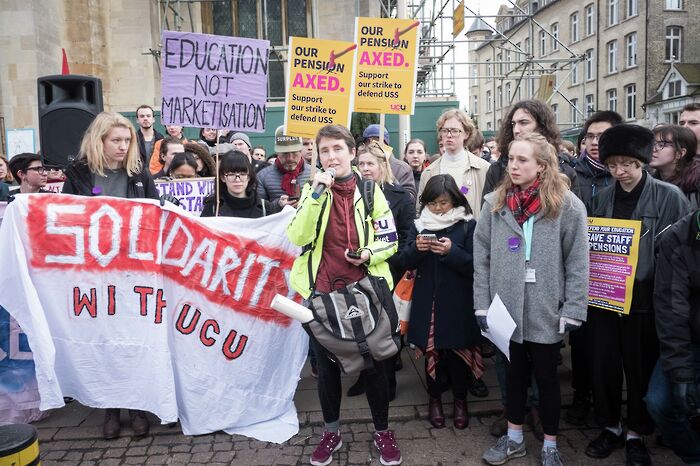Mental health comes with an unacceptable price tag
In her first column, Madeleine Wakeman highlights the burdensome cost of mental health treatment and its disproportionate impact on poorer people

“That’ll be £50, please.”
Counselling sessions can feel incredibly awkward and unnatural. It’s a very personal experience to meet someone and immediately open up about your deepest insecurities, often detailing the histories of all of your friendships and relationships within a matter of minutes. It can be uncomfortable, and this feeling is only exacerbated by handing over cash at the end of the meeting; it almost feels like you are paying for friendship. For some individuals, counselling can be incredibly helpful. It provides an atmosphere where all may feel listened to, welcomed, and accepted. But it is a luxury which must be paid for.
It is absurd to consider the commercialisation of mental health services standing in stark contrast with government-funded physical health solutions. If one were to break their leg, they would be rushed immediately to hospital, put in a cast, and be told to rest. But no cast can heal depression.
“The reality is that there are significantly higher instances of poor mental health among individuals of a low economic status”
While the cost of a single prescription (currently £8.60 in England) might not appear extortionate at first glance, it is remarkable how quickly prescription costs can add up. Picking up just two prescriptions a month can add up to over £200 per year. Recovering from a mental health condition is an incredibly lengthy, tedious process. There are numerous anti-anxiety and anti-depressants out there, in an even broader range of strengths. Each patient must go through a trial and error process before finding the one which is most effective for them. Even after the correct medication has been identified, most doctors will insist on regularly monitoring the patient’s progress, meaning that many patients will have to pay for their prescriptions at least once a month.
These costs are merely rewards for finding the courage to go to the doctor, or to contact a counsellor. Only anxiety is a cruel enough condition to convince sufferers that they are not unwell enough to be seeking help, not unwell enough to be taking up people’s time, or not unwell enough to justify wasting money on prescriptions or counselling.
The severity of the problem is exacerbated by the reality that there are significantly higher instances of poor mental health among individuals of a low economic status. The NHS themselves even state on their website that “feeling low or anxious is a normal response when you…are struggling with debt”.
“Needless to say, the NHS would not withdraw funding for an operation while the scalpel is still inside the body”
Of course, there are support systems for the heavy costs involved. In theory, it is possible to get an exemption for paying for prescriptions, but the booklet which needs to be filled out in order to claim this seems almost deliberately complicated. The NHS does offer free counselling and cognitive behavioural therapy services, but once you’ve made it past the lengthy waiting list, NHS counselling is capped at 12 sessions. Needless to say, the NHS would not withdraw funding for an operation while the scalpel is still inside the body.
Another option, aside from counselling and medical help, is to turn to self-help remedies. Some of these can be as simple as exercising, or reading a good book. But then look at the price of a gym membership (coming in at £30 a month for Cambridge students), or a self-help book (my favourite, Overcoming Anxiety, comes in at £19.99 on Amazon). Yoga in particular is often recommended for depression and anxiety as a meditative exercise of mindfulness, but at £6 a class with Cambridge University Yoga Society, this is not something everyone can afford.
Students are neck-high in debt the minute they enter university. The University of Cambridge is particularly expensive, with books often costing around £40 each, and some of the most expensive accommodation costs in the country. We also have costs unique to our traditions: paying for gowns, formals and May Balls are not something every student has to worry about.
Research has shown that around one in four individuals in the UK suffer with a mental health condition. This figure includes students, members of the working class, and the elderly. Yet mental health support has become a commodity. Emotional stability has been given a price tag. This leaves only one question: who said money can’t buy happiness?
 Features / How sweet is the en-suite deal?13 January 2026
Features / How sweet is the en-suite deal?13 January 2026 Arts / Fact-checking R.F. Kuang’s Katabasis13 January 2026
Arts / Fact-checking R.F. Kuang’s Katabasis13 January 2026 News / SU sabbs join calls condemning Israeli attack on West Bank university13 January 2026
News / SU sabbs join calls condemning Israeli attack on West Bank university13 January 2026 Comment / Will the town and gown divide ever truly be resolved?12 January 2026
Comment / Will the town and gown divide ever truly be resolved?12 January 2026 News / 20 vet organisations sign letter backing Cam vet course13 January 2026
News / 20 vet organisations sign letter backing Cam vet course13 January 2026











